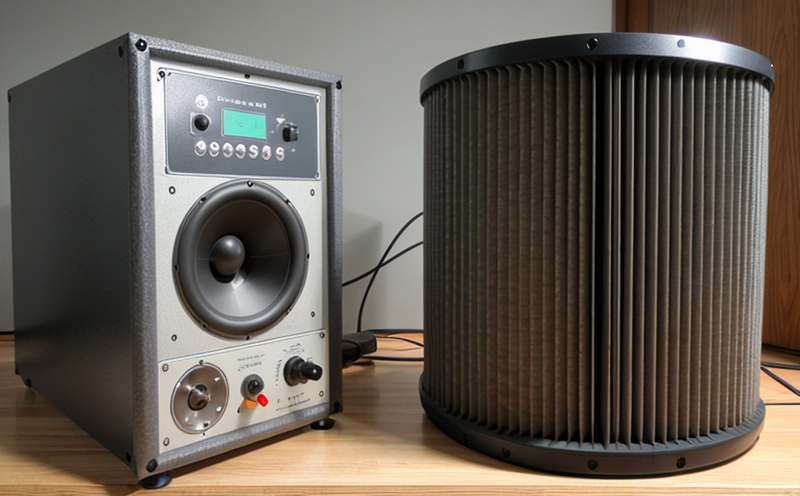ISO 20816-4 Vibration Testing of Pumps on Ships
The ISO 20816 series of standards provides a framework for ensuring that marine equipment, including pumps used in ships, meet stringent performance and reliability requirements. The International Organization for Standardization (ISO)'s ISO 20816-4 specifically focuses on the vibration testing of pumps installed aboard ships. This service is crucial for quality managers, compliance officers, R&D engineers, and procurement teams to ensure that equipment complies with international standards.
The process involves subjecting a pump to specific vibration levels and frequencies under various operating conditions. Compliance with ISO 20816-4 ensures the durability, reliability, and safety of pumps in challenging marine environments. This test is essential for maintaining performance and preventing failures that could lead to operational disruptions or safety hazards.
The testing procedure involves several critical steps. First, the pump must be assembled according to its manufacturer’s specifications and then mounted on a vibration test rig designed specifically for this purpose. The equipment is subjected to a series of controlled vibrations that simulate real-world conditions at sea. This includes variations in speed, load, and temperature.
Once testing is complete, detailed measurements are taken using high-precision accelerometers placed strategically around the pump. These sensors capture data on the vibration levels across various frequencies. The collected data is then analyzed against the acceptance criteria defined by ISO 20816-4. Compliance with these standards ensures that the tested pumps will perform reliably under expected service conditions.
The importance of this testing cannot be overstated, especially in the context of maritime safety and efficiency. Non-compliance can lead to premature failure, increased maintenance costs, and potential hazards at sea. By adhering to ISO 20816-4, shipowners and operators demonstrate their commitment to maintaining high standards of equipment performance.
The results of this testing are critical for several stakeholders:
- Quality managers ensure consistent product quality across batches.
- Compliance officers verify adherence to regulatory requirements.
- R&D engineers refine designs based on real-world data.
- Procurement teams select suppliers who meet stringent standards.
In conclusion, ISO 20816-4 vibration testing of pumps on ships is a vital component of ensuring maritime equipment reliability and safety. It provides critical insights into the performance characteristics of pumps under simulated operational conditions, thereby enhancing overall vessel efficiency and reducing maintenance costs.
| Applied Standards |
|---|
| ISO 20816-4 |
Why It Matters
The significance of ISO 20816-4 vibration testing extends beyond mere compliance with international standards. Proper vibration testing ensures that marine pumps are robust enough to withstand the harsh conditions encountered at sea. This includes variations in temperature, pressure fluctuations, and mechanical stress due to vessel movements.
Non-compliance with these stringent standards can lead to several adverse outcomes:
- Pump failure leading to operational downtime.
- Increased maintenance costs associated with premature replacement.
- Hazards on board the ship, potentially endangering crew and passengers.
By adhering to ISO 20816-4, stakeholders not only enhance equipment reliability but also contribute to overall maritime safety. This commitment to quality fosters trust among clients and ensures that vessels operate efficiently, thereby maximizing productivity and minimizing risks.
Applied Standards
The primary standard applied in this service is ISO 20816-4. This international standard outlines the procedures for vibration testing of pumps installed on ships. It specifies the test setup, operating conditions, measurement techniques, and acceptance criteria that must be met.
| Applied Standards |
|---|
| ISO 20816-4 |
The standard emphasizes the importance of comprehensive testing to ensure that pumps can operate reliably under a wide range of conditions. Compliance with this standard is mandatory for ensuring maritime equipment meets high standards of performance and reliability.
Why Choose This Test
Comprehensive assessment of pump durability and reliability.
Ensures adherence to international standards, enhancing credibility.
Promotes safe operation under varying environmental conditions.
Reduces the risk of equipment failure leading to operational disruptions.
Provides detailed data on vibration levels for informed decision-making.
Supports continuous improvement in design and manufacturing processes.
This testing service is particularly beneficial for companies involved in the maritime industry, as it ensures that critical equipment meets the highest standards of performance and reliability. By choosing this test, stakeholders can demonstrate their commitment to quality, safety, and efficiency, thereby gaining a competitive edge in the market.





